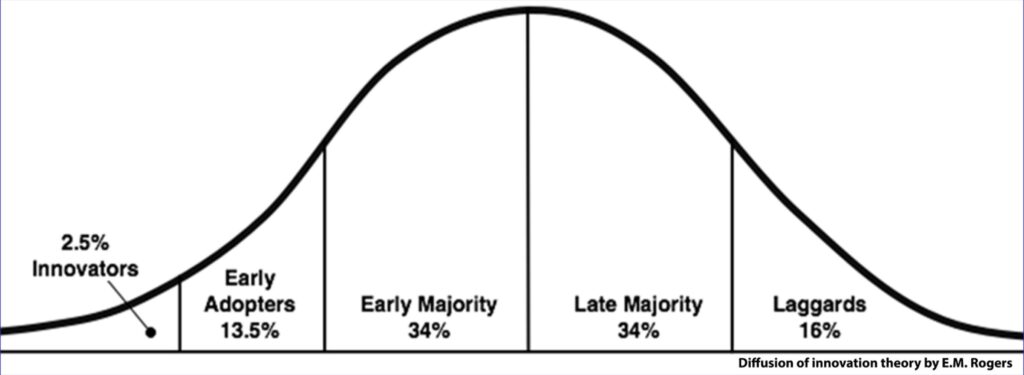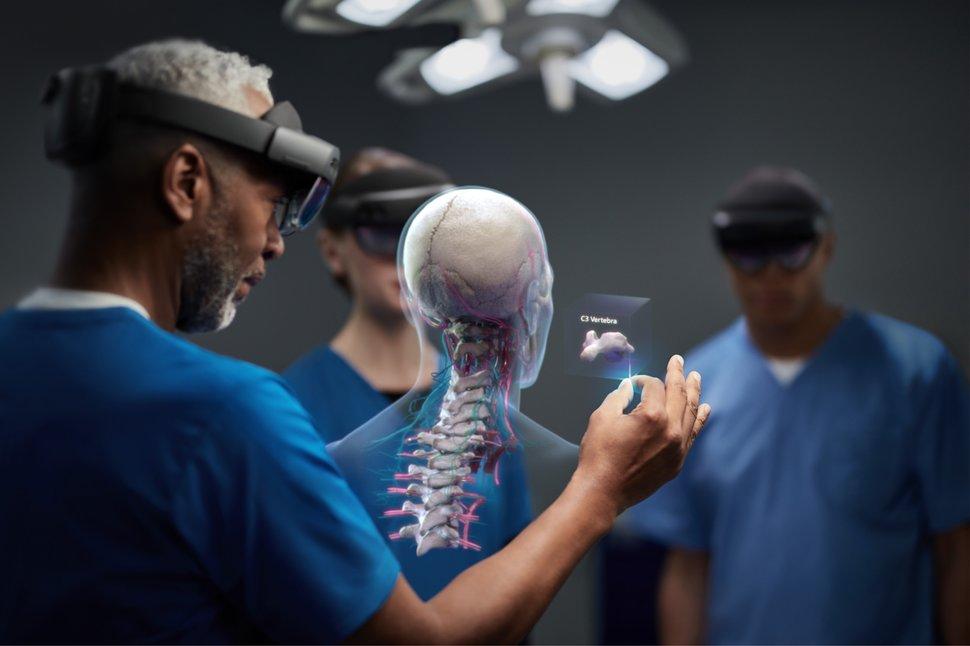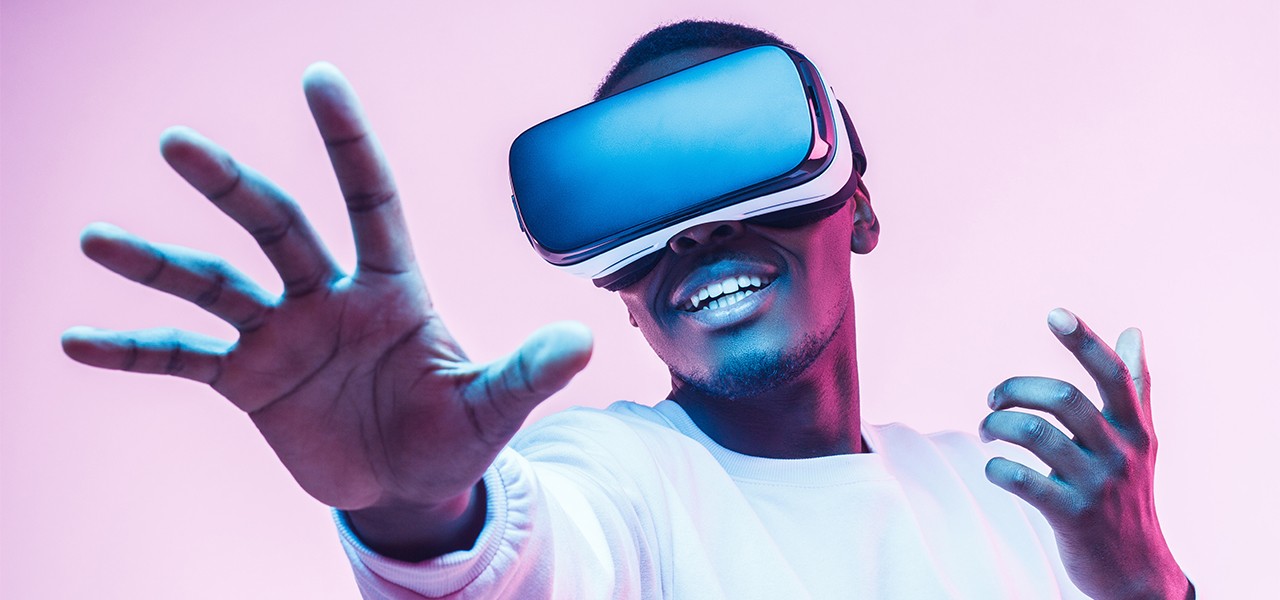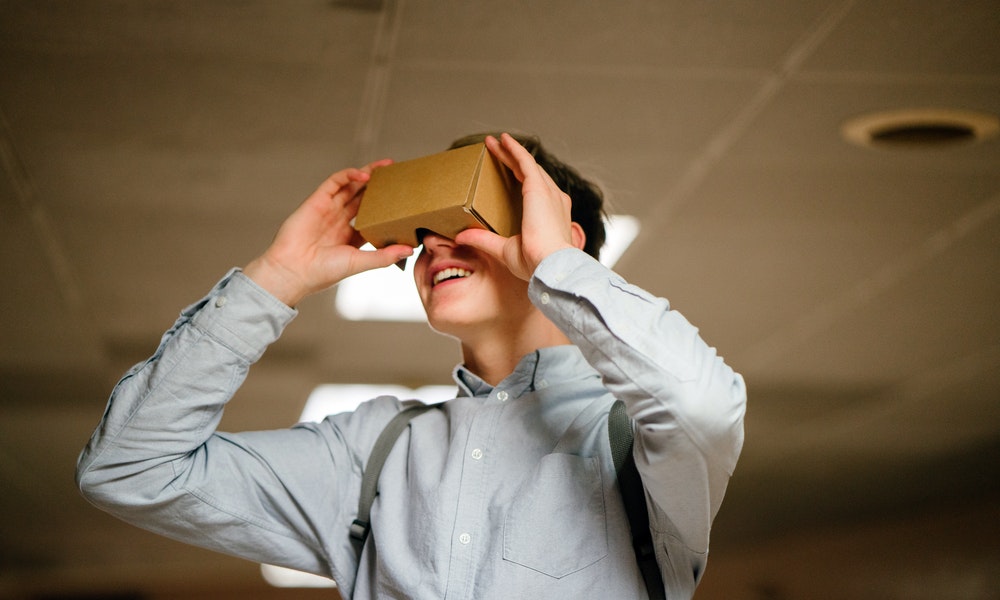If you have heard about the metaverse, you probably also know that since last year it has been one of the hottest topics in the tech stratosphere (don’t ask me what stratosphere is, it just rhymes there). This topic or trend also has big money behind it now (yeah, big enough for Facebook to change its name to Meta). Meta and other tech giants are betting billions of dollars on the hope that virtual reality is the future of human interactions.
What is the metaverse?
So many people think it is just building stuff out of thin air, and they may be right. After all, the metaverse isn’t real, but it is a virtual world in a simple term. But beyond the surface explanation, the term “Metaverse” was first coined in 1992 in Snow Crash, a Neil Stephenson sci-fi novel that propounds the onset of a dystopian digital world.
It is a virtual experience where people can interact, socialise and do anything they like. It is a technology that combines virtual, augmented, and physical reality. Technology companies such as Nvidia Corp, Epic Games Inc, Microsoft Corp., and Meta Platforms Inc, formerly Facebook, are all rushing to create their ‘own’ virtual worlds. However, these companies visions have yet to take shape fully. Still, in the coming years, these companies will make a lot of progress regarding the metaverse. Early this year, Microsoft announced its biggest acquisition with the purchase of Activision Blizzard, a gaming company, for $68.7 billion in what tech analysts have referred to as a boost for Microsoft metaverse ambition.
Before the buzz about metaverse, you might have heard or seen virtual reality (VR) headsets like Oculus or from other VR headset makers like Xion, Varjo, etc. With a VR headset, you can play virtual reality games presently, but in the metaverse, you can do more than that because social functions are an integral feature of the metaverse. At the moment, a VR headset is the entry point into the metaverse. The dependency on VR technology has slowed down development and the adoption rate of the metaverse. VR headset has the visual immersion to make users enjoy the immersive metaverse experience. Headset-wearing users could attend concerts, participate in meetings or go on a class trip to Rome or a concert in Las Vegas in the metaverse.
This may all seem insane, and the idea of living in a virtual world may not appeal to many people right now, but Mark Zuckerberg and other tech giants are betting big on this, and I believe people will come around sooner or later. According to the diffusion of innovation theory developed by E.M. Rogers in 1962, it is one of the oldest social science theories. It examined and explained the major players in innovation adoption, describing the pattern and speed at which new ideas, practices, or products spread through a population. The prominent players in the theory are innovators, early adopters, early majority, late majority, and laggards. And if we go by this theory and try to apply it to the metaverse, we would realise that not everyone would jump on it at first. That is cool because when the iPhone or Blackberry came out first years ago, not everyone accepted it until later, and I believe the same thing will pan out for the metaverse technology.

Some metaverse critics have predicted the metaverse idea will fail and that Meta will waste precious money on it. According to Meta CEO Mark Zuckerberg, he said
the metaverse isn’t just virtual reality. It’s going to be accessible across all of our different computing platforms; VR and AR, but also PC, and also mobile devices and game consoles.
Mark Zuckerberg
This sounds very good because, as mentioned earlier, VR headsets are one of the limitations to the widespread adoption of VR and AR.
We already spend a large amount of our time on the internet using social media. I think Meta is betting on and just about to take it to the next level and give internet users a new digital experience. Instead of looking at a screen, you’re going to be in these experiences. Everything we do online today, connecting socially, entertainment, games, work, will feel more natural and vivid with metaverse. According to Mark Zuckerberg, it isn’t about spending more time on screens; it is about making the time we already spend better. He also listed some of the basic concepts of the metaverse such as Presence, Avatars, Home space, Teleporting, Interoperability, Privacy and Safety, Virtual Goods, and Natural Interfaces.
In his address last year, Zuckerberg said that it would take at least 5 to 10 years before the metaverse becomes mainstream and that most people first encounter with the metaverse would be through gaming. I would add that gaming is no longer a hobby; it has evolved into that multi-million dollar hobby where players can make millions of dollars doing what they know how to do. Game designers and engineers have created some of the best visuals and design experiences known to humans.
The challenges ahead for the metaverse
From the looks of it, there are a lot of hurdles metaverse has to scale as it grows and for rapid adoption rate. Most of these challenges need to be addressed from the get-go. Solving some of these challenges will be slow for the metaverse (policy-wise) because government policies all around the world are trying to catch up with technology (not just metaverse). Still, in hindsight, there are already surfacing challenges facing the metaverse from reviews and research conducted by MIT technology review.
Meta has already opened its metaverse platform called Horizon Worlds. In Horizon Worlds, up to 20 avatars can get together at a time to explore, hang out, and build within the virtual space. According to MIT review, a beta tester reported something deeply troubling: she had been groped by a stranger on Horizon Worlds. While talking to The Verge, Vivek Sharma, the vice president of Horizon Worlds, called the incident “absolutely unfortunate” and further said,
That’s good feedback still for us because I want to make [the blocking feature] trivially easy and findable.
According to MIT review findings, it is not the first time a user has been groped in VR – nor, unfortunately, will it be the last.

The incidents show how the metaverse can strengthen its safety feature to mitigate sexual harassment among various users before policy clampdowns from governments worldwide for lack of reasonable safety measures.
Another hot topic metaverse critics are discussing is the Neuropsychological effect of metaverse use. There have been ongoing debates about the mental implications of the metaverse on its users. Although this topic is quite broad from the medical perspective, the prominent and straightforward example raised is how a user feels in the event of being struck or shot in the metaverse (the shock factor), even though this experience is not real. Psychologists argue that the pain or shock that a metaverse user feels from such experience is real and has a damaging effect on the limbic system in the brain.
Moreover, there is no scientific research about neuropsychological assessment evaluation of metaverse users yet. Studies like this will shed more light on this topic and show verifiable empirical data specifically on how the metaverse will affect our brain.
For every challenge, there is a solution. As the saying goes, “it will be a feature and not a bug”, and in due time, things will only get better in the metaverse.
And yes, there are also positive psychological benefits of the metaverse and how it can significantly aid and improve a user’s mental health. According to Peter Klein, a psychology expert and cognitive-behavioural psychotherapist on investing.com,
The Metaverse can act as a bridge that facilitates a more personal experience without having to travel. The pandemic and increased decentralised nature of society have provided suitable priming for people to be able to engage with the metaverse.
Klein further explained numerous mental disorders benefit from using virtual reality. For example, people with social phobia often believe that they are being judged in social situations. They think they stand out like a sore thumb and pay too much attention to how they come across. In severe cases, this can make people hyper-focus on every move they make and everything they say.
Also, metaverse can help general medical practice for doctors conduct clinical procedures through clinical medical simulation while attending to a patient. An excellent example of this already is the use of Microsoft HoloLens by medical doctors. According to Microsoft, NHS doctors in the UK used its HoloLens at the height of the covid-19 pandemic to protect themselves while providing patient care.

James Kinross, a consultant surgeon at Imperial College Healthcare and senior lecturer at Imperial College London, who has been using HoloLens for many years at the hospital, said:
In March, we had a hospital full of Covid-19 patients. Doctors, nurses, and allied healthcare professionals providing ward care had a high risk of exposure to the virus, and many became ill. Protecting staff was a major motivating factor for this work, but so was protecting patients. If our staff are ill, they can transmit disease, and they are unable to provide expert medical care to those who needed it most.
Using Remote Assist, doctors wearing HoloLens on the Covid-19 wards can hold hands-free Teams video calls with colleagues and experts anywhere in the world. They can receive advice, interacting with the caller and the patient simultaneously, while medical notes and X-rays can also be placed alongside the call in the wearer’s field of view.
Metaverse can help in connecting with others without the perceived threat of the direct presence of others. This can help sufferers achieve some form of connection with others whilst providing a safe environment to address their anxieties. Individuals suffering from simple phobias such as arachnophobia (fear of spiders) often find it easier to confront their fears in VR than in-person exposure.
To end this article, this is what early adopters of the metaverse are currently saying “reality is already uninspiring; let’s go to the metaverse”. One thing that is sure about the metaverse is that if you are a true tech fan, you are definitely in for an adventure of a lifetime. Still, sometimes technology is often a game of contradictions – and metaverse tech companies need the speed of execution and yet have the patience to wait for results (widespread adoption). I am convinced and bullish about the success of the metaverse, but I really can’t say why at the moment.
Here is my take, every digital economy is and will be powered by the physical economy, and the metaverse won’t be an exception. I am a fan of Mark Zuckerberg, and I believe his ingenious ideas can transform how we socialise and interact on the internet. However, I am sceptical about the adoption rate and how metaverse can evolve into that next big thing.






Maybe I am old school, but this is a little too much for me. We’ll see how this all turns out